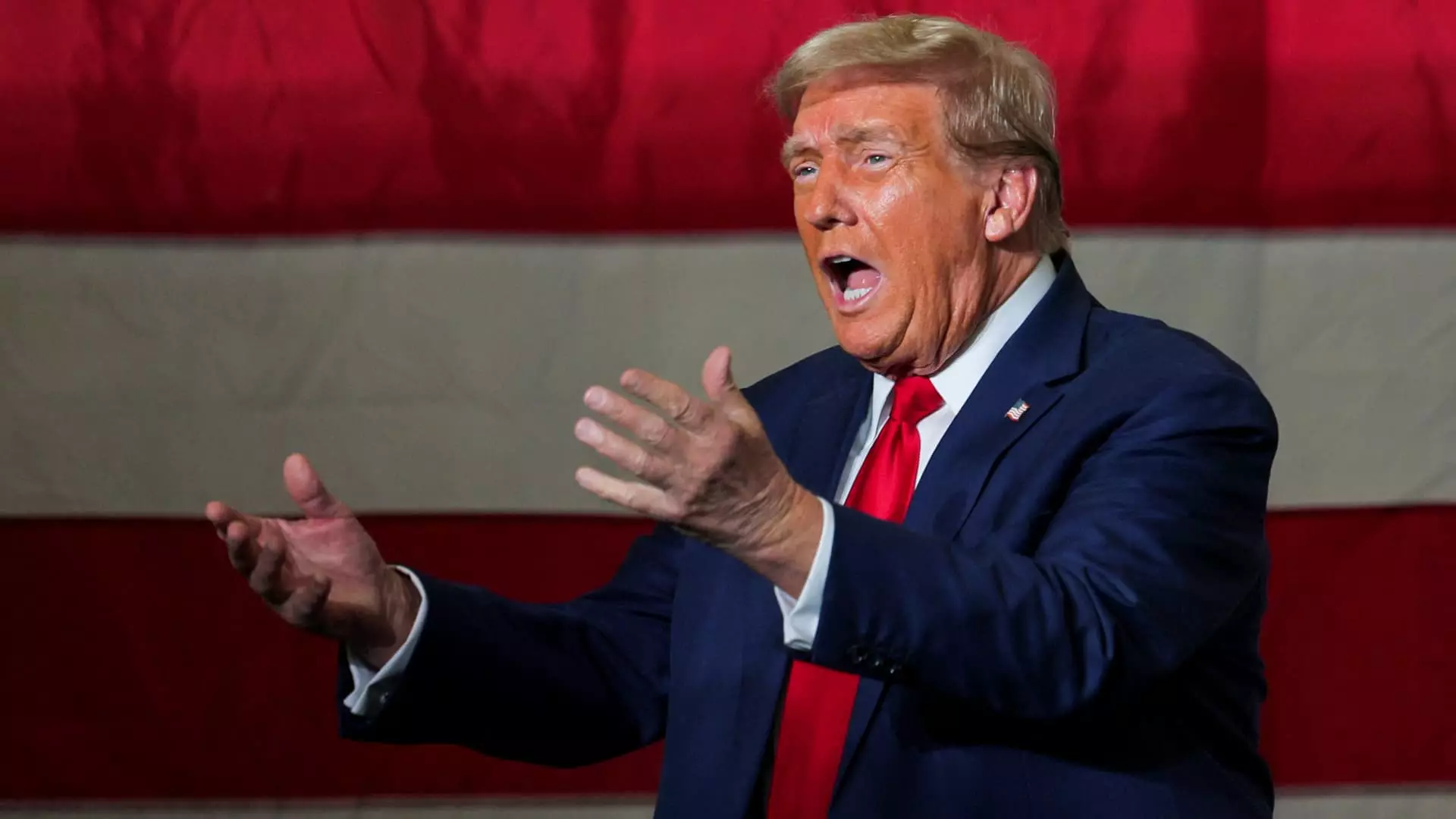The recent unsealing of a detailed motion by Special Counsel Jack Smith marks a pivotal moment in the ongoing legal battle surrounding former President Donald Trump’s alleged election interference. This significant document, which spans 165 pages, has raised the stakes, particularly as the 2024 presidential election approaches. The timing and content of this filing not only influence the judicial landscape but also the political dynamics leading into an election year.
At the core of this case lies the assertion that Trump sought to unlawfully overturn the 2020 presidential election results. According to the motion, claims of presidential immunity for actions taken while in office are being challenged by Smith. Given a recent Supreme Court ruling that appeared to grant Trump some form of immunity for official acts, it may seem surprising that this new evidence is being presented. However, the Special Counsel argues that Trump’s actions were not quintessentially presidential but were instead rooted in a private agenda aiming to undermine the democratic process. This distinction is crucial, as it underlines the premise that no individual, regardless of their previous office, is above the law.
The filing elucidates specific incidents that illustrate the alleged attempts by Trump and his associates to create confusion regarding the election outcomes. For instance, it discusses a troubling episode on November 4, 2020, where a campaign employee attempted to instigate chaos at a crucial ballot counting location, the TCF Center in Detroit, when faced with unfavorable results. The employee’s directive to “find a reason it isn’t” reflects a strategy crafted not to clarify the situation but rather to sow distrust. Such an admission, if substantiated, is alarming as it could imply premeditated actions designed to subvert democratic norms.
Moreover, the evidence points to a disturbing mindset among Trump’s inner circle. The alleged directive to “Make them riot” showcases not just an intent to manipulate public perception but a willingness to incite civil unrest as a means to achieve political ends. With all eyes on Washington, such claims place a spotlight on the integrity of political discourse and electoral fidelity in the United States.
Another intriguing aspect of the filing is the account of then-Vice President Mike Pence’s private conversations with Trump. These exchanges highlight a stark contrast between Pence’s approach and Trump’s responses. Pence reportedly endeavored to persuade Trump gently to accept his electoral defeat, suggesting various ways to mitigate the fallout from conceding. Pence’s advice, including phrases like “take a bow,” illustrates a recognition of political reality, something Trump seemed unwilling to embrace.
The dynamics of their interaction reflect a broader theme of loyalty versus legality that shaped Trump’s administration. Pence’s attempts to navigate a turbulent political landscape reveal the complexities faced by those within Trump’s circle, balancing allegiance to the President with adherence to constitutional principles. This push-and-pull raises critical questions about the ethical responsibilities of public officials amidst partisan extremities.
As the filing gains attention, it cannot be overlooked how it impacts the political atmosphere leading into the 2024 presidential race. The revelation of such detailed accusations against Trump, who is again the leading contender for the Republican nomination, creates a dramatic backdrop for the electoral campaign. Should Trump win the election, the possibility of him influencing the Department of Justice to dismiss his own criminal charges looms large, which raises alarming questions about legal accountability for those in power.
This scenario poses a significant threat to the foundational concept that no leader is above the law. The intersection of these unprecedented legal challenges with Trump’s candidacy sets the stage for a contentious election season. Furthermore, the existing political polarization is likely to deepen as supporters and detractors utilize the details of the filing to bolster their respective narratives.
The unsealing of Special Counsel Jack Smith’s filing not only sheds light on the specifics of the allegations against Trump but also serves as a reflection of the broader challenges facing American democracy. As the nation gears up for pivotal elections, maintaining trust in electoral processes becomes crucial. The events surrounding Trump’s actions paint a troubling portrait of the lengths to which individuals may go to cling to power, making this courtroom drama a matter of national significance. The implications are profound, not just for Trump, but for the very integrity of the democratic institutions that undergird American society.


Leave a Reply